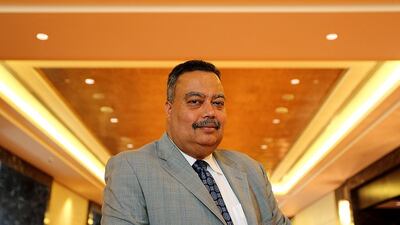DUBAI // A greater amount of open data could boost opportunities for entrepreneurs, aid homebuyers and keep the UAE’s eGovernment services competitive with other countries, a conference has heard.
Much of the existing data available to the public may be irrelevant to them or old, said Richard Kerby, senior inter-regional adviser on eGovernment services to the UN Department of Economic and Social Affairs.
For example, the most recent population estimates for the UAE available on the national open data portal are from 2006 to 2010. Births and deaths statistics are also available, but only from 1995 to 2012.
Data that does not infringe on personal privacy could be made available to the public for sectors such as housing and education, Mr Kerby said on Tuesday at the UN eGovernment Index workshop, organised by the Telecommunications Regulatory Authority.
“There is no reason why that information is not available to the public,” he said.
The UAE ranked 32nd in this year’s UN eGovernment survey, which evaluates countries based on online government services, telecommunication infrastructure, human capital and eParticipation.
The country has dropped four places since it was ranked 28th in 2012. It also fell from first to second among Arabian Gulf countries, losing the top spot to Bahrain.
The TRA organised the two-day workshop for information-technology departments of government bodies to strengthen the UAE’s position in the rankings.
The UAE hopes to be first worldwide by 2021, said Hamad Al Mansoori, the country’s mobile government director.
“We think that there is a journey where we need to work as one team and build a team from federal and local to reach that target, which is number one in eServices in 2021,” he said.
Government bodies need a communications plan and to ensure they are “all aligned with the same vision” for the future of eServices, said Mr Al Mansoori.
“I think the greatest challenge is to start providing real, complete, integrated [services] in this regard – federal and local,” he said.
Strong leadership and cooperation between government agencies is essential for improving eGovernment, Mr Kerby added, saying that the UAE’s size compared with countries such as the US could give it an edge.
“The advantage you guys have, being a smaller country, is that you can integrate these services easier,” he said.
Benefits of having more open data could include increased opportunities for entrepreneurs and businesses, Mr Kerby said.
Data could also be used to create smartphone applications such as one that uses neighbourhood income, education and house-price statistics to help people decide where they want to live, he said.
Other examples could include real-time traffic data or aggregated health data, which most of the developed world publishes online for the public to view, Mr Kerby said.
Another way to improve the UAE’s rankings is to ensure that eGovernment services are distributed across all seven emirates and available to more vulnerable groups, such as immigrants, youths, the elderly or those with low incomes, he said.
The services could also be provided in expatriate workers’ languages, for example.
Some audience members said some of these groups would not need eServices or that translation would be the responsibility of workers’ sponsors.
On the UAE dropping four places in the rankings, Mr Kerby said it was not because its services worsened but because other countries significantly improved.
“The UAE has done extremely well,” he said.
“Look at the bigger picture: it’s not a negative reflection on the UAE.”
The UN survey evaluated 193 countries, with the UAE ranking 12th in online services, 13th in eParticipation, 43rd in infrastructure such as internet penetration rates and 117th in human capital, which analysed school enrolment and school completion data.
The two-day workshop ends on Wednesday at the Conrad Hotel, near the World Trade Centre, in Dubai.
Attendees on Tuesday included information-technology employees at government ministries, as well as the Zakat Fund, UAE University, Dubai’s Roads and Transport Authority and the Sheikh Zayed Housing Programme.
lcarroll@thenational.ae

